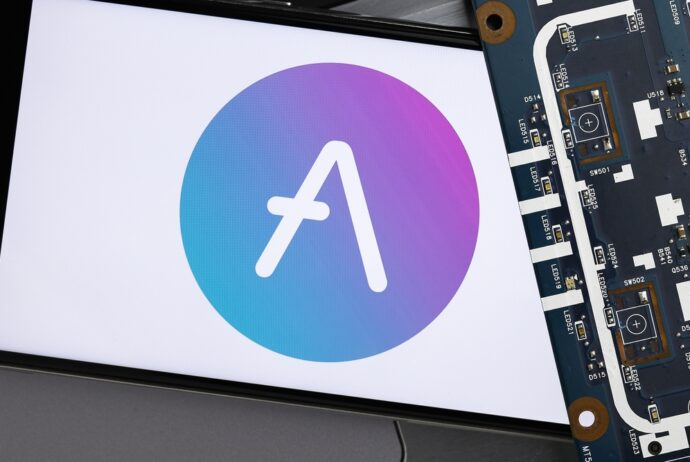Aave is one of the largest decentralized finance (DeFi) protocols that allows users to borrow or lend crypto and real-world assets without going through a centralized broker. So when these users borrow, they pay interest; when they lend their crypto, they earn interest.
Originally, Aave was built on the Ethereum blockchain and only supported ERC20 tokens to process transactions. However, in recent months, the lending platform has expanded to other blockchains, including Fantom, Harmony, and Avalanche.
Aave uses a decentralized autonomous organization (DAO), meaning people who hold the protocol’s native token AAVE operate and govern this decentralized lender.

CypherMindHQ.com Artificial Intelligence Crypto Trading System - Surpass the competition with this cutting-edge AI system! Utilize the prowess of innovative algorithms and amplify your crypto trading strategies with CypherMindHQ. Learn more today!
How Lending Works on Aave
In the traditional finance world, you will need to visit a bank with liquid cash to get a loan. The bank will request you provide collateral against the loan, and then you are required to repay the loan in monthly installments with interest included.
But DeFi is different as there is no bank. That means you get loans from other crypto users instead of financial institutions. But still, you have to collateralize those loans. And since cryptocurrencies are highly volatile, many DeFi lending protocols require borrowers to overcollateralize.
So, if you need to take a $1,000 crypto loan from Aave, the collateral will be more than that amount. In case the price drops and the collateral no longer covers the borrowed amount, Aave will liquidate it to cover the loan cost.
Currently, Aave has pools for thirty Ethereum-based assets, including stablecoins like DAI, Tether, Gemini dollar, and USDC. Other markets include Fantom, Polygon, Harmony, and Avalanche, among others.
Why Would You Want to Borrow Crypto?
One of the reasons to borrow crypto is to carry out arbitrage trading. That is spotting a difference in prices of certain crypto in various exchanges and capitalizing on it. But the price differences usually tend to be small, so you will need a lot of crypto to make a decent profit.
That is where Aave flash loans can be useful. This loan type enables people to borrow crypto without collateral in order to purchase a digital asset. Then, after you sell it, you can use the same transaction to return the original loan amount while you keep the profit.

CypherMindHQ.com Artificial Intelligence Crypto Trading System - Outpace the competition with this high-end AI system! Leverage the capabilities of progressive algorithms and enhance your crypto trading performance with CypherMindHQ. Learn more today!
How Liquidity Pools Work
Aave has created various liquidity pools for people to deposit cryptocurrencies, which then become the funds that the platform can lend out. Locking your crypto in one of those pools makes you a liquidity provider. Therefore, when a borrower repays their loan, you will receive a portion of the interest.
Why Doesn’t Everybody Do it?
There are several reasons. First of all, you have to transfer crypto into Aave to start using the protocol. And considering the high transaction cost on the Ethereum network, some crypto users are hesitant to transfer small amounts.
Second, the liquidation risk discourages many from borrowing loans. Immediately Aave dictates that your collateral is lower than the loan amount, it gets liquidated to ensure that other people can still access loans.
What’s the Use of the AAVE Token?
AAVE tokens govern the lending protocol. The token holders have the power to vote on various proposals regarding Aave.
AAVE holders can also use their tokens as collateral and usually get a discount on borrowing fees.
AAVE is one of the biggest DeFi tokens by market cap and can be traded on several crypto exchanges, including Huobi Global and Binance.



